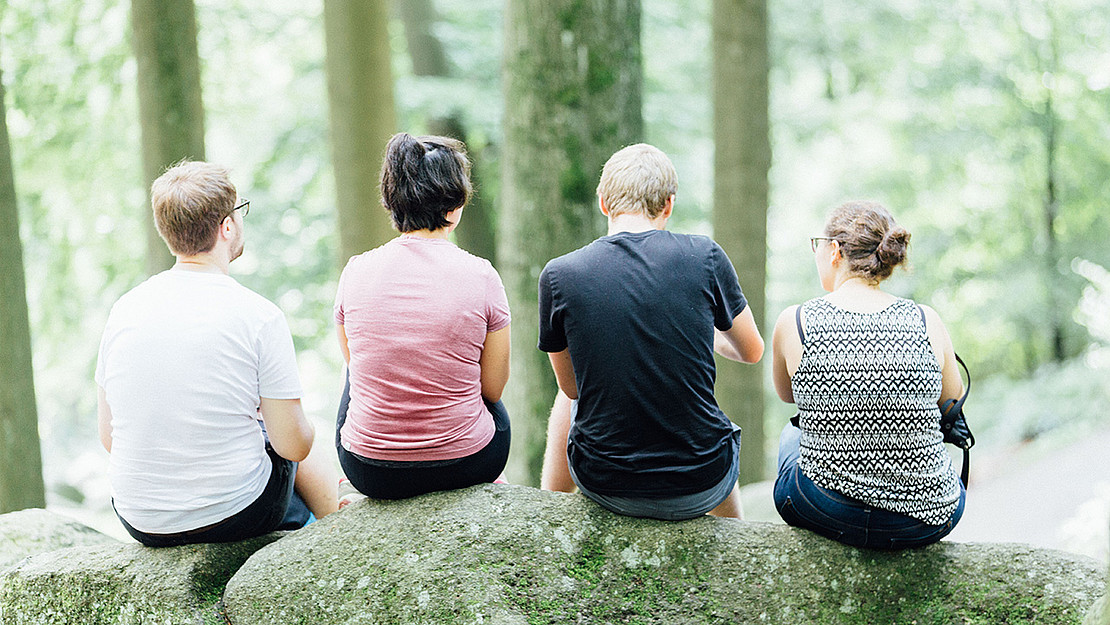This page contains automatically translated content.
How happy does nature make you?
 Image: Daniel Münderlein
Image: Daniel MünderleinFor his field research, he looked for two different yet comparable places. The choice fell on the Felsenmeer, which is a half-hour drive from Darmstadt in the Odenwald. The unspoiled place is used by many nature lovers for a few hours of downtime - pure nature. As a contrast, Münderlein has chosen Steinbrücker Teich, also near Darmstadt. The place is a recreational area close to the city, very popular with families.
Münderlein proceeded in three steps: First, he gave questionnaires to participants at both locations, one before an outing and one after. They were asked about their subjective feelings on individual aspects, each of which had to be rated on a scale. The participants formed a "healthy cross-section of society," he reports. In total, he collected data from 250 participants at each location.
In addition to the questionnaires, he organized small guided hikes at Felsenmeer and Steinbrücker Teich. During the one-hour hikes, Münderlein asked trigger questions about specific places and feelings. The dictaphones were coupled with a GPS receiver so that he could precisely locate the answers to his questions afterwards. Münderlein's goal was to capture each person's view of the landscape.
In addition, the participants took photos with instant cameras, captured things and places, and supplemented the photos with descriptions and comments. Light, atmosphere, impressions of space, paths, colors, or a sense of vastness were especially important to people.
Finally, he compared the results of the surveys with the interviews and the photos. "The research results are enormously important for the future, not only for the areas studied and for the current client, the Geo-Naturpark Odenwald. At the end of my research, I would like to make it more tangible how nature and landscape in certain areas have a positive effect on people. The results should then be applicable to other areas; there is always the question in the planning and management of nature conservation or recreation areas, where, for example, benches or lookout points can be sensibly placed and where they are more of a nuisance. It is also important, for example, how and where new trails should be routed along," says Münderlein. "In addition, educational missions arise: To bring topics about nature and landscape to young people, to arouse their curiosity and to encourage them to hike and walk in the green."
What was striking in the interviews was the influence of socio-cultural factors as well as the age of the interviewees. One example: the younger generation grows up with wind turbines in the landscape, while the older ones often see it as a loss of identity.
"My goal was to investigate the recreational value starting from human perception," Münderlein says. He can well imagine repeating the survey in other locations - for example, by the sea - to obtain even more comparable data.
"So far, too little importance has been attached to the value of landscapes for well-being. With my research, I also want to draw attention to the fact that everyone has the same right to nature and landscape. It is not justified if, exaggeratedly, one half of a place suffers from the effects of a bridge or a garbage dump, while the other half benefits from green nature right next door," Münderlein explains. Everyone benefits from the experience of nature and landscape. That's why their uplifting effect must be preserved. And it must remain accessible to everyone.